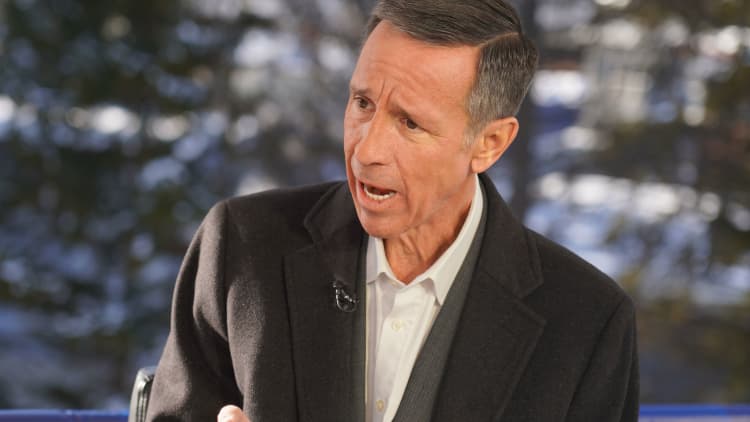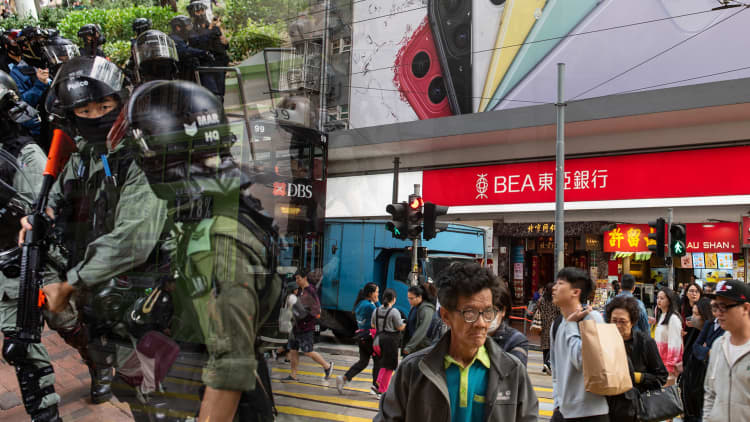
Hong Kong's economy — hard hit from widespread antigovernment protests — as well as uncertainty over the U.S.-China trade war, are key topics of discussion among political and business leaders at the World Economic Forum's annual meeting in Davos, Switzerland. It's not surprising, considering Moody's downgraded Hong Kong's credit rating by one notch to Aa3 from Aa2 on Monday, citing concerns over the city's institutions, governance strength and constraints on the territory's autonomy.
Protests in the city were initially sparked by proposed changes to a law that would have allowed extradition to mainland China. They later evolved into broader antigovernment demonstrations, labeled "the yellow economic circle," which demanded greater democracy.
"The absence of tangible plans to address either the political or economic and social concerns of the Hong Kong population that have come to the fore in the past nine months may reflect weaker inherent institutional capacity than Moody's had previously assessed," Moody's said in a statement.
Shares in Hong Kong fell more than 2% on Tuesday, reflecting investor pessimism today about the local economy.

For more than half a year, antigovernment protests have gripped this city, keeping locals at home and tourists away and plunging Hong Kong's economy into a recession. According to the latest government forecast, real gross domestic product for 2019 as a whole is forecast to contract 1.3%, the first annual decline since 2009.
"It's not surprising that Hong Kong is a very weak market today," Arne Sorenson, CEO of Marriott International told CNBC on "Squawk Box" Tuesday from Davos. "Top-line performance in Hong Kong will be down 50% first quarter of this year compared to a stable first quarter last year," he predicted.
"All things considered, it's slowed in China, but it continued to grow year over year. So it wasn't a train wreck," Sorenson said.
The government — still at an impasse with protesters — is trying to curb economic fears, all the while coping with U.S.-China trade war tensions. It has run advertisements and made promotional videos with the tagline "Hong Kong Is On," seeking to reassure investors and visitors that the Asian financial hub remains free and stable despite the street battles. It aims to retain its position as the top market for new stock market listings globally.





